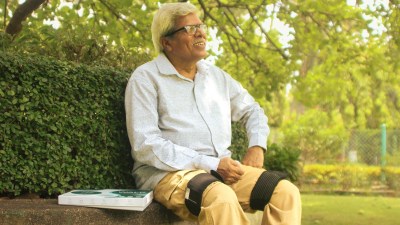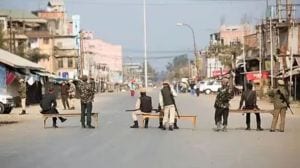Vajpayee8217;s reforms wheel gets rolling
New Delhi, Oct 20: The new government of Prime Minister Atal Behari Vajpayee got down to the business of speeding up the economic reforms...

New Delhi, Oct 20: The new government of Prime Minister Atal Behari Vajpayee got down to the business of speeding up the economic reforms at the very first meeting of the Union Cabinet by first not giving in to the truckers demand of rolling back diesel rates and then clearing the Insurance Regulatory Authority Bill for its tabling in the Parliament.
The Union Cabinet cleared the bill to pave the way for opening up the insurance sector to Indian joint-venture firms with a maximum foreign equity of 26 per cent. Subsequently, the Life Insurance Corporation LIC Act and General Insurance Act will be suitably amended to end monopoly of the state-owned companies on writing insurance businesses in the country.
A Bill to this effect is likely to be tabled in the Parliament as early as possible, either during the present session or during the Winter session, with the final decision being left to the Business Advisory Committee.
At the cabinet meeting, Finance Minister Yashwant Sinha briefed the Cabinet on thefragile fiscal situation thereby building ground for initiating tough measures in the days to come. The Finance Minister emphasised the urgency of reducing food and fertiliser subsidies. The Cabinet was also informed about the need of increasing prices of LPG and kerosene in tandem with the increase in diesel prices though not in the same proportion.
Sinha stressed that hard decisions were necessary to overcome expenditure overrun on account of outgo towards Kargil and general elections. He also sought the cooperation of his Cabinet colleagues in expediting the disinvestment process to achieve the Budget target of Rs 10,000 crore.
In another important decision, the government refused to bow down to transporters demands and instead permitted state governments to invoke the Essential Services Maintenance Act ESMA to maintain the supply of essential commodities like vegetables, fruits and foodgrains and also to prevent escalation of their prices.
The Cabinet reportedly discussed the diesel price hikeissue tonight but did not take any decision on the truckers8217; demand.
When contacted, Union Minister for Surface Transport Nitish Kumar told The Indian Express that there was no question of a rollback as the Finance Ministry had already said no. He said that all efforts had been made to get the transport operators to reconsider their decision but they remained adamant. 8220;It was our compulsion to increase the price, as it is linked to the international prices. It was no longer possible to keep it down,8221; the minister said, adding that there had been eight price revisions since 1997, of which six were downward.
Earlier, both Kumar and Union Petroleum Minister Ram Naik held extensive meetings with the transport operators trying to convince them not to go on strike. 8220;They had a one-point demand 8212; of diesel price being rolled back. They were not willing to accept anything less than that. No talks can work with this attitude,8221; Nitish Kumar said.
Addressing a joint press conference, Secretary RoadTransport, Ashok Joshi, and Petroleum Secretary S Narayanan said the government had drawn up a contingency plan to cope with the situation. Joshi said that his department would be in touch with all state Governments to see that supply of essential commodities wasn8217;t disrupted in any way.
The AIMTC claimed that the hike was steep and it was unable to pass it on to consumers since most of the trucks operated on a long-term contract which did not have any provision for escalation in freight.
Joshi said that the government assured the operators that it would, on their behalf, talk to the contracting industries and apex chambers of industry to agree to a hike but the AIMTC did not budge. As far as short-term one-day contracts, the AIMTC claimed that the hike couldn8217;t be passed on because of the intense competition in the sector.
Government officials claimed they will find a solution in the next few days.
- 01
- 02
- 03
- 04
- 05






























